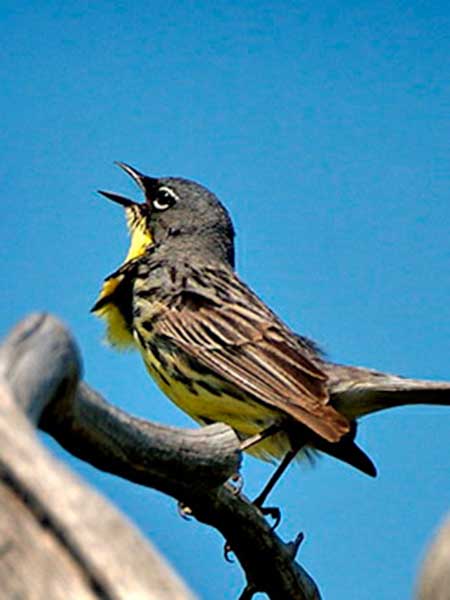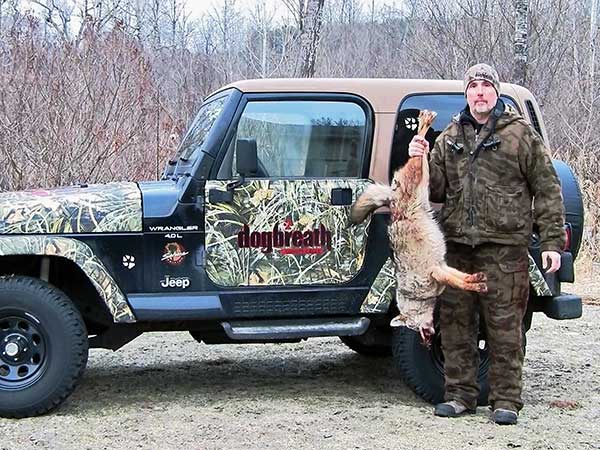- Details
(Provided by Michigan DNR)
 Michigan's Nongame Fund provides many benefits.This is the time of year when charities and other nonprofit organizations remind citizens that they can lower their tax bills by donating to these organizations. The Department of Natural Resources can say the same: contributions to Michigans Nongame Fish and Wildlife Fund are tax-deductible and the fund is what provides state officials with the money to manage the 80 percent of wildlife species in this state that are not hunted or trapped. (Game species are managed with revenue from license sales.)
Michigan's Nongame Fund provides many benefits.This is the time of year when charities and other nonprofit organizations remind citizens that they can lower their tax bills by donating to these organizations. The Department of Natural Resources can say the same: contributions to Michigans Nongame Fish and Wildlife Fund are tax-deductible and the fund is what provides state officials with the money to manage the 80 percent of wildlife species in this state that are not hunted or trapped. (Game species are managed with revenue from license sales.)
Celebrating its 30th anniversary this year, the Nongame Fish and Wildlife Fund has changed in several ways since its inception in 1983, though the three main goals remain the same:
- To restore populations of endangered species;
- To maintain healthy populations of animals and plants; and
- To promote through education and first-hand opportunities to experience wildlife appreciation for and awareness of Michigans diverse wildlife.
When it was first created, the nongame fund raised money through a check-off on the state income tax return. The check-off was discontinued in the 1990s when the fund reached $6 million. The fund continues to generate revenue from interest on the balance, by voluntary contributions, and, of course, the purchase of Conserve Wildlife Habitat license plates (Look for the Loon!).
- Details
 Coyote WorkshopD&R Sports Center will host a free Coyote Hunting Workshop at 10 a.m. and 1 p.m. on Jan. 4.
Coyote WorkshopD&R Sports Center will host a free Coyote Hunting Workshop at 10 a.m. and 1 p.m. on Jan. 4.
Coyote hunting expert, Todd Sullivan, and creator of Dogbreath Coyote Calls, will present both a morning and afternoon seminar called Shoot More Coyotes. The seminar focuses on techniques and tricks that lead to consistent success hunting coyotes in Michigan.
- Details
Michigan DNR officials have confirmed a cougar was illegally killed last week in the Upper Peninsulas Schoolcraft County.
Acting on a tip that a cougar had been illegally killed at a hunting camp in northeast Schoolcraft County, DNR conservation officers and Special Investigations Unit detectives were able to successfully recover evidence and identify and apprehend two suspects from Bay County.
Upon completion of the DNRs investigation, the case will be turned over to the Schoolcraft County Prosecuting Attorney with warrant requests for charges. The state penalty for illegally killing a cougar, classified as an endangered species in Michigan, is up to 90 days in jail and fines and restitution of up to $2,500.
- Details
(Provided by Michigan DNR)
The Department of Natural Resources this week that its Fisheries Division stocked eight different species totaling more than 1,050,000 fish that weighed more than 12.5 tons this fall. Fish were stocked at 111 different locations throughout the state.
It was another outstanding fall stocking season that will provide enhanced fishing opportunities throughout Michigan, said DNR Fish Production Manager Gary Whelan. This is in addition to our successful spring stocking efforts that put more than 19 million fish into the states waters.
The number and type of fish stocked varies by hatchery as each facilitys ability to rear fish differs because of water supplies and temperature. In Michigan, there are six state and three cooperative hatcheries that work together to produce the species, strain and size of fish needed by fisheries managers. These fish must then be delivered at a specific time and location for stocking to ensure their success. Most fish in Michigan are stocked in the spring.
- Details
As successful deer, elk and moose hunters return from trips in Michigan and beyond, the Department of Natural Resources (DNR) reminds hunters that there are regulations regarding the importation of carcasses from certain other states and provinces.
For free-ranging deer, elk or moose taken in Colorado, Illinois, Kansas, Maryland, Minnesota, Missouri, Nebraska, New Mexico, New York, North and South Dakota, Pennsylvania, Texas, Utah, Virginia, West Virginia, Wisconsin, Wyoming, Alberta and Saskatchewan, restrictions exist on parts of these animals that may be brought into Michigan.
The above states and provinces have detected chronic wasting disease (CWD) in free-ranging animals. Only the following parts of a deer, elk or moose carcass may be brought into Michigan: deboned meat, antlers, antlers attached to a skull cap cleaned of all brain and muscle tissue, hides, upper canine teeth or a finished taxidermy mount.
If you are notified by another state or province that a deer, elk or moose you brought into Michigan tested positive for CWD, you must contact the DNR Wildlife Disease Lab within two business days (8 a.m. to 5 p.m.) at 517-336-5030 and provide details.


